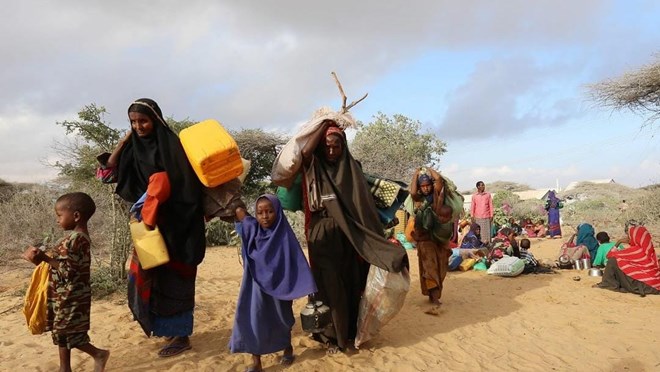
Wednesday April 13, 2022

GENEVA — U.N. agencies are calling on international donors to act now and provide the funds needed to prevent another potentially devastating famine in Somalia. Millions of Somalis are in need of life-saving assistance.
The United Nations says three quarters of a million people have been forced to leave their homes in search of food for themselves and grazing land for their cattle. Last week, a U.N. food security report stated that Somalia is on the brink of a humanitarian disaster.
Etienne Peterschmitt is the U.N. Food and Agriculture Organization representative in Somalia. Speaking from the capital, Mogadishu, Peterschmitt says some 81,000 people already are suffering from catastrophic conditions in some areas of the country. He says they are facing starvation, malnutrition, loss of livestock, crops, other assets, and eventually disease and death.
“Almost quarter of a million people died the last time famine was declared in Somalia," Peterschmitt said. "And with the current likelihood of poor rain, skyrocketing food prices, and a huge funding shortfall as was already mentioned also, it means a perfect storm is brewing for another catastrophic event in which millions of people are at risk of sliding into famine.”
Children accounted for nearly half of the quarter-million people who died in Somalia’s last famine in 2011. So far, the U.N.’s $1.4 billion 2022 Humanitarian Response Plan for Somalia is less than five percent funded.
The World Food Program’s deputy country director in Somalia, Lara Fossi, says her agency must make some hard choices on how to distribute aid because of a lack of money.
“We have already prioritized our very limited nutrition funding to treat malnutrition rather than to prevent it," said Fossi. "And this, of course, will mean that more people are likely then to fall into needing treatment for acute malnutrition in the longer term…and we are taking from the hungry to feed the starving.”
Fossi warns the threat of famine may force people into negative coping strategies, like selling off livestock and other assets. That, she says, will undermine their long-term ability to support themselves and force them to remain dependent on humanitarian relief.